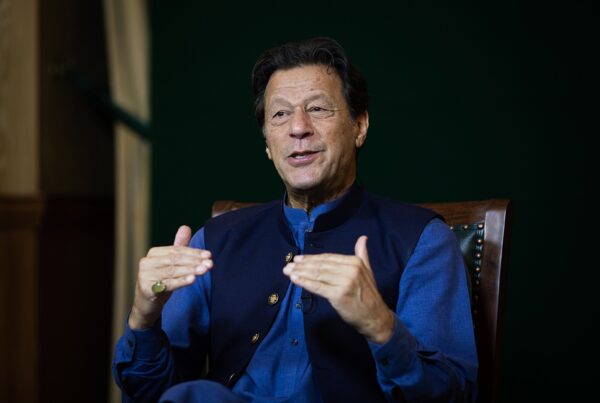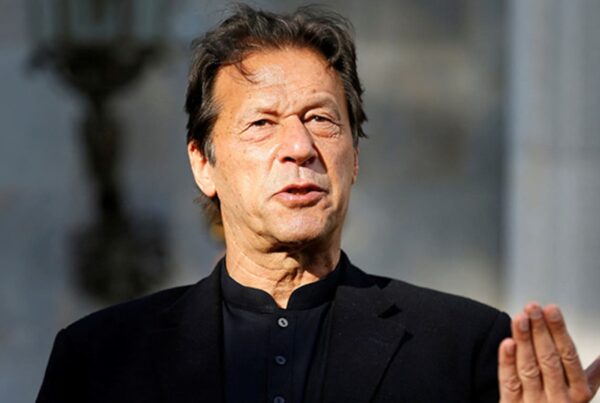Under the written provisions of the Constitution of the Islamic Republic of Pakistan, 1973 (Constitution), the judicial interpretation and international laws, the principles of seniority, and legitimate expectancy are not mandatory rules for the appointment of Supreme Court and High Court judges. Necessarily, only ‘competent’ and ‘upright’ judges should be elevated to the apex court though some judicial bigwigs give importance to the principle of seniority in the elevation of judges saying it promotes mediocrity.
Such uncalled-for discussions wrongly give an impression that our judicial system lacks credibility when it comes to identifying the most suitable ones as SC judges. On one side, it is argued that the principle of seniority is a must in filling these vacant posts; and that the pick-and-choose method should be avoided to promote merit and transparency in the appointment of apex court judges. The word “seniority” is not written, even once, in the Constitution about judges’ appointments. Where the phrase “most senior” appears, it speaks about the composition of the Judicial Commission of Pakistan (JCP) in Article 175 A of the Constitution. The JCP consists of CJP as Chairman, four senior-most SC judges, one former Chief Justice or judge of the Supreme Court, the Attorney General of Pakistan, the Federal Law Minister, and a Pakistan Bar Council nominee.
The requirements for the eligibility for judges of the apex and high courts are laid down separately in Articles 177 and 193 of the Constitution, respectively. Dealing with the eligibility of judges to be appointed to the Supreme Court, Article 177(1) of the Constitution states: “The Chief Justice of Pakistan and each of the other Judges of the Supreme Court shall be appointed by the President by Article 175A.” It further states that the candidates must; be Pakistani citizens; have been a judge of the High Court for not less than 5 years, or have been enrolled as an advocate of the High Courts for not less than 15 years. Regarding high court appointments, Article 193(1) of the Constitution states: “The Chief Justice and each of other Judges of a High Court shall be appointed by the President by Article I75A.” and that candidates must: be Pakistani citizens not less than 45 years of age; been enrolled as an advocate of the High Court for not less than 10 years, or has been a member of civil service for not less than 10 years and has for a period of not less than 3 years served as the District Judge in Pakistan, or held a judicial office for not less than 10 years.
With no mention of the principle of seniority, both Articles only require citizenship of Pakistan, requisite age, and experience in this respect. Most importantly, a landmark judgement (PLD 2002 SC 939) unambiguously states (1) Principles of seniority and legitimate expectancy neither apply nor can be extended to the appointment of Judges of the Supreme Court. (2) No Constitutional convention or past practice exists to appoint the most Senior Judge of a High Court as a Judge of the Supreme Court. (3) Rule of fitness and suitability has an edge over the principles of seniority and legitimate expectancy. (4) Absence of the words “the most senior” in Art. 177 of the Constitution for appointment of Judges of the Supreme Court shows that the seniority of a Judge in the High Court is not a sine qua non for his appointment as a Judge of the Supreme Court. (5) Neither the principle of seniority is applicable as a mandatory rule for the appointment of Judges in the Supreme Court nor the said rule has attained the status of a convention.
The Supreme Court remarked that “the scope of the principles of seniority and legitimate expectancy in Al-Jehad Trust and Asad Ali’s cases are restricted to the appointment of the chief justice of a high court and the Chief Justice of Pakistan.” At present, there are five posts of judges lying vacant in the SCP while the five serving SCP judges out of the total 12 including Justice Munir Akhtar, Justice Amin-un-Din Khan, Justice Sayyed Mazahar Ali Akbar Naqvi, Justice Muhammad Ali Mazhar, and Justice Ayesha A Malik were not chief justices of high courts rather were elevated to SCP bypassing the senior ones. During the judicialised phase from 2002 to 2010, the following junior judges were appointed to the SCP bypassing senior HC judges: Justice M. Javed Buttar (2004); Justice Tassadduq Hussain Jillani (2004); Justice Ch. Ijaz Ahmed (2005); Justice Syed Jamshed Ali (2005); Justice Khilji Arif Hussain (2009); Justice Mian Saqib Nisar (2010); Justice Asif Saeed Khan Khosa (2010). Likewise, six such appointments were made from 2011 to 2021: Justice Gulzar Ahmed (2011); Justice Amir Hani Muslim (2011); Justice Munib Akhtar (2018); Justice Amin-ud-Din Khan (2019); Justice Sayyed Mazahar Ali Akbar Naqvi (2020); Justice Muhammad Ali Mazhar (2021); and Justice Ayesha A. Malik.
Nevertheless, the proponents of seniority believe the violation of this principle puts a question mark on the ‘competence’ and ‘uprightness’ of senior high court judges and affects the credibility of the judiciary. It also shows, they believe, that a junior judge is more competent and upright than the senior judges, in other words, the senior judges are not competent and upright. They question if the ‘competence’ and ‘integrity’ of a senior high court judge are not admitted by the JCP, where does the credibility of the higher judiciary stand? On the contrary, the opponents stress the importance of considering the overall antecedents, reputation, and expertise in deciding issues, integrity, and conduct as well as their vision and spirit as judges of the provincial high courts. As per the Al-Jehad case verdict, the principles of seniority and legitimate expectation do not apply to the appointment of a Supreme Court Judge nor did these principles apply to the appointment of a CJP. Particularly, the verdict did not provide that while elevating a high court judge to a Supreme Court, the principle of seniority would necessarily be followed.
In July 2021, Justice Mohammad Ali Mazhar, who was fifth on the seniority list of the Sindh High Court, was elevated to the Supreme Court, by a majority of five to four members of JCP. Justice Mazhar had superseded SHC Chief Justice Ahmed Ali Sheikh, Justice Aqeel Ahmed Abbasi, Justice Hassan Azhar Mirza, and Justice Irfan Sadat Khan. Likewise, Justice Muneeb Akhtar, the fourth one on the SHC seniority list, was elevated in April 2018 to the SC judge. Also, two Judges of the LHC—Saqib Nisar and Asif Saeed Khan Khosa—were elevated to the apex court by ignoring the then Lahore High Court Chief Justice Khawaja Muhammad Sharif.
Importantly, in a letter to Chief Justice of Pakistan Umar Ata Bandial, Justice Qazi Faez Isa, senior puisne judge of the apex court—though sought elevation of chief justices of the high court to the Supreme Court—also said, “…an important factor to consider in the selection of superior court judges is also whether they have the requisite ability and determination to resist and repel unconstitutional acts, and the courage to preserve, protect and defend the Constitution.” The seniority principle lacks a constitutional basis and fails to concentrate on merit as appointments made based on seniority alone undermine merit and promote mediocrity. In the past, some judges were elevated to the SC ignoring seniority while others were appointed based on seniority but our judicial system fails to deliver justice to the people and loses public confidence.
The “Basic Principles on the Independence of the Judiciary”, as adopted by the Seventh United Nations Congress on the Prevention of Crime and the Treatment of Offenders in September 1985, declare that justice requires a fair and public hearing by a competent, independent, and impartial tribunal for every individual, by the principles proclaimed in the Universal Declaration of Human Rights, the International Covenant on Civil and Political Rights, and other United Nations instruments. The principles address the independence of the judiciary; freedom of expression and association; qualifications, selection, and training; conditions of service and tenure; professional secrecy and immunity; and discipline, suspension, and removal. The seniority as a principle in the appointment of judges has not been discussed even in the Basic Principles on the Independence of Judiciary that was adopted by the United Nations General Assembly (UNGA) in 1985. Rather these principles recognise the importance of selecting people for judicial office on the basis of attributes such as ‘integrity’, ‘appropriate training’, and ‘qualifications’ in law.
Though the name is “Islamic Republic of Pakistan”, the principles laid down in the Quran have never been applied to the appointment of judges in the country’s history. Not to speak of seniority, Quran terms the following personal desires such as lust for power, authority, etc., and accumulation of money beyond limits an impediment in the way of administration of justice. Simultaneously, Islam declares ineligible those who themselves are desirous of authority. The criterion established by Islam is too strict to be adopted in our current judicial system. But if it is adopted, it can ensure proper administration of justice in letter and spirit. Thus, neither the written provisions of the Constitution nor the judicial interpretation, particularly, the PLD 2002 SC 939 judgement necessitates the elevation of a senior high court judge to the apex court, therefore, junior judges may also be elevated to the Supreme Court if they are upright and competent and also blessed with other requisite judicial qualifications.





